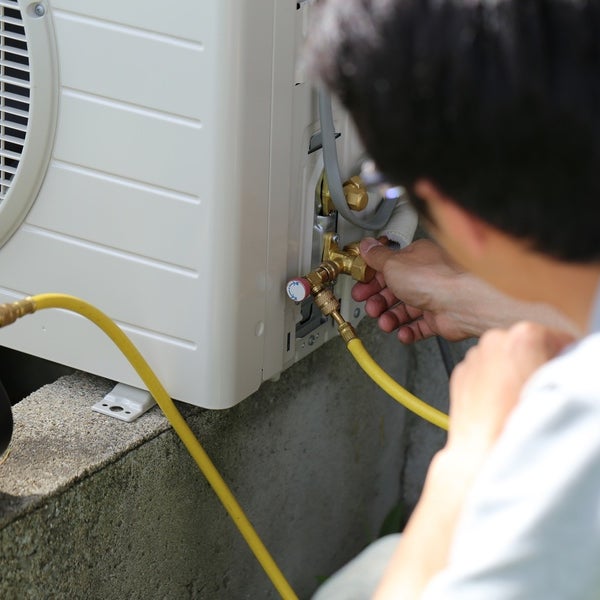HDPE Pipes for JJM: Ensuring Last-Mile Water Connectivity in Rural India

Access to clean and safe drinking water is a fundamental right, and in India, the Jal Jeevan Mission (JJM) has emerged as a transformative initiative to fulfill this right for every rural household. Launched by the Government of India in 2019, JJM aims to provide functional tap connections to every rural household by 2024. One of the critical components enabling the success of this ambitious mission is the use of High-Density Polyethylene (HDPE) pipes. Known for their durability, flexibility, and corrosion resistance, HDPE pipes have become the preferred choice for water supply networks across rural India. In this blog, we explore the vital role of HDPE pipes for JJM, their advantages, and how they are ensuring last-mile water connectivity.
Understanding the Jal Jeevan Mission (JJM)
The Jal Jeevan Mission is a flagship program under the Ministry of Jal Shakti that focuses on delivering potable water to every rural household through tap connections. The mission's core objectives include:
-
Ensuring regular water supply to every household
-
Promoting water conservation and efficient usage
-
Encouraging community participation in water supply management
-
Strengthening local infrastructure and capacity building
With the goal of "Har Ghar Jal," the mission aims to bridge the gap between urban and rural water accessibility. To achieve this, reliable and sustainable infrastructure is required, and this is where HDPE pipes for JJM play a crucial role.
Why HDPE Pipes Are Ideal for JJM Projects
HDPE (High-Density Polyethylene) pipes are manufactured using advanced polymer technology that makes them highly adaptable for water supply applications, especially in rural and remote areas. Here are some reasons why HDPE pipes are the backbone of JJM infrastructure:
1. Durability and Longevity
HDPE pipes are known for their exceptional lifespan, often exceeding 50 years. This ensures minimal maintenance and replacement costs, which is crucial for long-term sustainability in rural projects.
2. Corrosion and Chemical Resistance
Unlike metal pipes, HDPE pipes do not rust or corrode. They resist chemical reactions with soil and water, making them suitable for diverse geographical conditions across India.
3. Flexibility and Easy Installation
HDPE pipes are flexible and lightweight, which reduces transportation costs and simplifies installation, especially in hilly or uneven terrain common in rural areas.
4. Leak-Proof and Joint-Free Design
With advanced joining techniques like butt fusion and electrofusion, HDPE pipes offer leak-proof connections, ensuring water reaches its destination without wastage.
5. Cost-Effective Over the Long Run
Though the initial investment in HDPE pipes might be higher than some alternatives, their durability and low maintenance requirements result in long-term cost efficiency.
Role of HDPE Pipes in Last-Mile Connectivity
The final stretch of water delivery to rural households often involves navigating through difficult terrains, narrow lanes, and dispersed habitations. HDPE pipes for JJM are particularly suited for this task because:
-
They can bend and curve along the terrain, avoiding the need for costly fittings.
-
Their light weight allows easy manual handling without heavy machinery.
-
They can be buried underground or laid above ground depending on the situation.
-
They provide consistent water pressure and flow even at the farthest points.
This makes HDPE pipes an invaluable component in ensuring that no household is left behind in the JJM framework.
Success Stories: HDPE Pipes Making a Difference
Several states have already showcased significant progress in JJM implementation, thanks in part to the use of HDPE pipes:
1. Uttar Pradesh
Large-scale deployment of HDPE pipelines has accelerated the implementation of JJM projects in the state. Companies like Ashish Pipes are playing a pivotal role in manufacturing and supplying high-quality HDPE pipes tailored to the mission's needs.
2. Rajasthan
In water-scarce regions of Rajasthan, HDPE pipes are enabling the efficient transport of limited water resources to remote villages with minimal losses.
3. Himachal Pradesh and Uttarakhand
The mountainous terrain of these states presents unique challenges for infrastructure development. HDPE pipes, with their flexibility and ease of installation, have become instrumental in reaching rural homes situated in difficult topographies.
Environmental Sustainability of HDPE Pipes
As the world moves towards more sustainable infrastructure solutions, HDPE pipes for JJM contribute positively to the environment:
-
HDPE pipes are recyclable and require less energy to manufacture compared to metal pipes.
-
Their leak-proof nature prevents water wastage, a critical factor in water conservation.
-
Their long life span reduces the frequency of replacements, thereby minimizing resource consumption.
These features align perfectly with JJM’s emphasis on sustainable and eco-friendly water solutions.
How Ashish Pipes Supports the Jal Jeevan Mission
At Ashish Pipes, we are proud to be an active contributor to the success of the Jal Jeevan Mission. Our state-of-the-art manufacturing facility in Noida produces a wide range of HDPE pipes that meet stringent quality standards required for rural water supply networks. Here's how we make a difference:
-
Custom Pipe Solutions: Tailored pipe diameters and pressure ratings suitable for different regional needs.
-
Large Inventory: Ensuring uninterrupted supply for ongoing and upcoming projects.
-
Technical Support: Assisting government and private contractors with installation guidance.
-
Quality Assurance: Every HDPE pipe is tested for strength, flexibility, and resistance before dispatch.
We believe that our commitment to quality and innovation helps communities gain access to clean water faster and more reliably.
Looking Ahead: Future of HDPE Pipes in Rural Water Infrastructure
As the Jal Jeevan Mission continues to progress towards its 2024 goal, the demand for high-quality piping infrastructure is only going to rise. HDPE pipes will continue to be at the forefront of this development due to their unmatched adaptability, performance, and sustainability.
Moreover, as India evolves its water supply strategies to include smart water management and IoT-based monitoring, HDPE pipes with embedded sensors may soon become a reality. This will further strengthen last-mile connectivity by enabling real-time tracking of water flow, leakage detection, and predictive maintenance.
Conclusion
HDPE pipes for JJM have proven to be a game-changer in India's mission to provide every rural household with a functional tap connection. Their unique advantages—durability, flexibility, and resistance to corrosion—make them the ideal choice for navigating the complex landscapes and challenges of rural water supply.
As a trusted name in pipe manufacturing, Ashish Pipes is committed to supporting this mission through quality products and dedicated service. With continued investment, innovation, and collaboration, HDPE pipes will remain a vital tool in ensuring that the dream of "Har Ghar Jal" becomes a reality for every Indian citizen.
What's Your Reaction?
 Like
0
Like
0
 Dislike
0
Dislike
0
 Love
0
Love
0
 Funny
0
Funny
0
 Angry
0
Angry
0
 Sad
0
Sad
0
 Wow
0
Wow
0












































